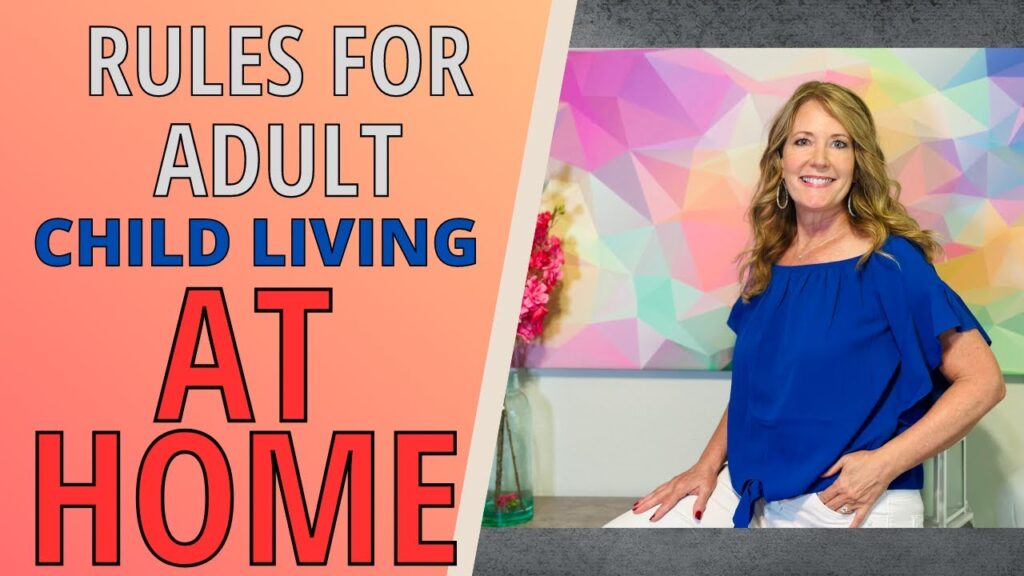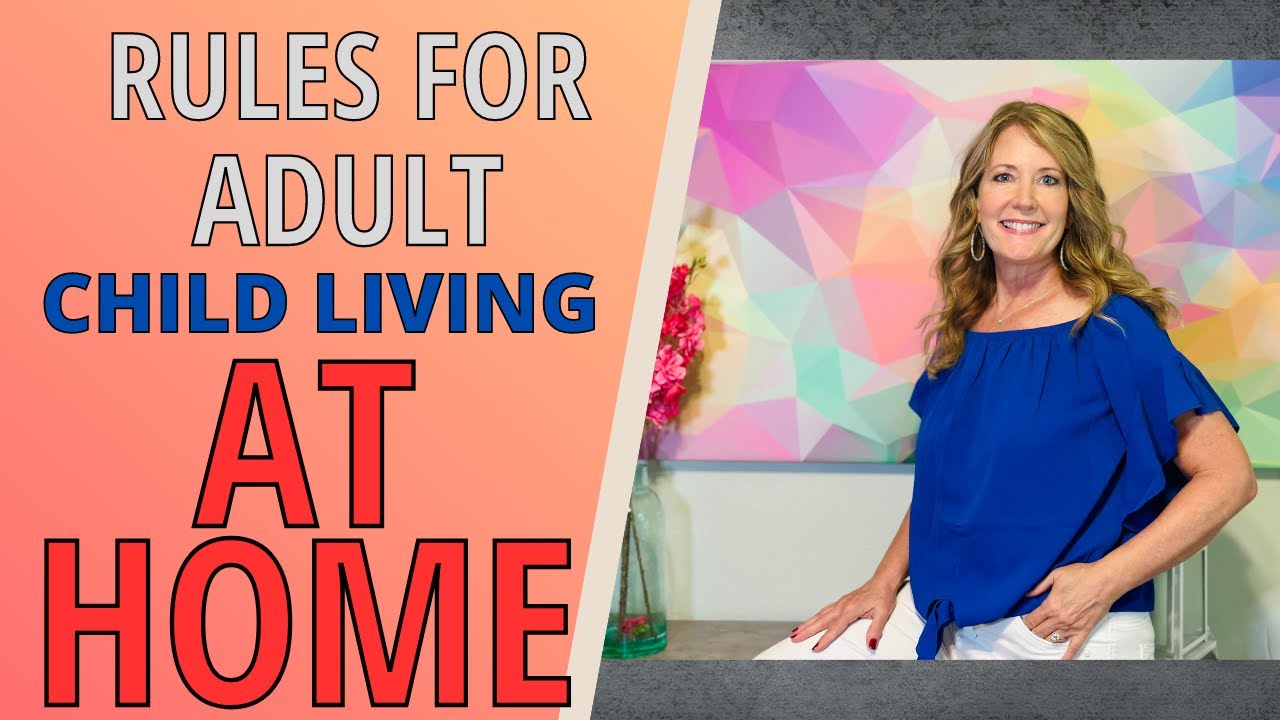
Navigating the Complex Realities: Consequences for Adult Children Living at Home
The trend of adult children living at home has become increasingly prevalent in recent years, driven by factors such as rising housing costs, student loan debt, and economic instability. While there can be benefits to this arrangement, such as shared expenses and family support, there are also significant consequences for adult children living at home that need careful consideration. This article delves into the multifaceted ramifications of this living situation, exploring both the positive and negative aspects and providing insights for families navigating this complex dynamic.
Economic Consequences
One of the primary reasons adult children choose to live at home is financial. The economic consequences for adult children living at home are significant, both in the short and long term.
Delayed Financial Independence
Living rent-free or at a reduced rate can delay the development of financial independence. Adult children may become accustomed to a lower cost of living, making it more difficult to transition to independent living later on. They might postpone learning essential budgeting skills, saving for a down payment on a house, or investing for retirement. This dependence can hinder their ability to build a solid financial foundation for their future.
Impact on Savings and Debt Repayment
While living at home can theoretically allow adult children to save money, it doesn’t always translate into significant savings. Some might use the extra income for discretionary spending rather than focusing on debt repayment or long-term investments. Others might feel less pressure to work diligently or seek higher-paying jobs, knowing they have a safety net. The consequences for adult children living at home in terms of savings can be paradoxical; while the opportunity is there, the motivation might be lacking.
Strain on Parental Finances
The financial burden isn’t solely on the adult child. Parents may face increased expenses related to food, utilities, and other household costs. This can strain their own finances, especially if they are nearing retirement or have other financial obligations. It’s crucial to have open communication about financial contributions and expectations to avoid resentment and financial hardship for the parents. The consequences for adult children living at home can extend to their parents’ financial well-being.
Social and Emotional Consequences
Beyond the economic implications, there are significant social and emotional consequences for adult children living at home.
Delayed Personal Development
Living at home can hinder personal growth and development. Adult children might miss out on the experiences that come with independent living, such as learning to manage a household, navigating social situations on their own, and developing a strong sense of self-reliance. They may also feel a sense of arrested development, comparing themselves unfavorably to peers who have already established independent lives. [See also: How to Encourage Independence in Young Adults]
Impact on Relationships
The living arrangement can strain relationships, both within the family and externally. Adult children might struggle to establish healthy boundaries with their parents, leading to conflicts and resentment. Dating can become complicated, as bringing a partner home can disrupt the family dynamic and limit privacy. Furthermore, potential partners might view living at home as a sign of immaturity or lack of independence. The consequences for adult children living at home can ripple outwards, affecting their social lives and romantic relationships.
Reduced Sense of Responsibility
Without the responsibilities of managing their own household, adult children may become less accountable and responsible. They might rely on their parents for basic tasks, such as cooking, cleaning, and laundry, hindering their ability to develop essential life skills. This can lead to a sense of entitlement and a lack of motivation to take on new challenges. The consequences for adult children living at home include a potential erosion of personal responsibility.
Psychological Consequences
The psychological consequences for adult children living at home are often overlooked, but they can be just as significant as the economic and social impacts.
Increased Stress and Anxiety
Living in close proximity with family can increase stress and anxiety levels. Adult children might feel pressured to conform to their parents’ expectations, leading to conflicts and a sense of being controlled. They may also experience anxiety about their future, feeling stuck in a situation they cannot easily escape. The lack of privacy and personal space can further exacerbate these feelings.
Lowered Self-Esteem
Remaining at home longer than expected can negatively impact self-esteem. Adult children might feel like they are failing to meet societal expectations of independence and success. They may compare themselves unfavorably to their peers, leading to feelings of inadequacy and shame. This can create a cycle of low self-esteem and a reluctance to take risks or pursue new opportunities. The consequences for adult children living at home can be deeply intertwined with their sense of self-worth.
Difficulties with Identity Formation
Adulthood is a crucial period for identity formation. Living at home can hinder this process, as adult children may struggle to define themselves independently from their families. They might feel pressure to maintain the family status quo, suppressing their own desires and aspirations. This can lead to a sense of being lost or unfulfilled, making it difficult to establish a clear sense of purpose. The consequences for adult children living at home can extend to their ability to forge their own identities.
Strategies for Mitigating Negative Consequences
While there are potential downsides to adult children living at home, these can be mitigated with proactive planning and open communication.
Establish Clear Expectations and Boundaries
Before the adult child moves back in, it’s essential to establish clear expectations and boundaries regarding finances, responsibilities, and privacy. This includes discussing rent, chores, curfews (if any), and guest policies. Having these conversations upfront can prevent misunderstandings and conflicts down the line.
Encourage Financial Contribution
Adult children should contribute financially to the household, even if it’s not a full market rent. This helps them develop financial responsibility and reduces the burden on their parents. The amount of contribution should be based on their income and the overall household expenses. [See also: The Importance of Financial Literacy for Young Adults]
Promote Independence and Personal Growth
Parents should encourage their adult children to pursue their goals and interests, even if it means stepping outside their comfort zones. This could involve supporting their education, helping them find a job, or encouraging them to volunteer or pursue hobbies. The goal is to foster independence and help them develop a strong sense of self-worth. The consequences for adult children living at home can be lessened by actively promoting their independence.
Set a Timeline for Moving Out
Establishing a timeline for the adult child to move out can provide a sense of urgency and motivation. This timeline should be realistic and based on their individual circumstances, but it should also be firm enough to prevent them from becoming too comfortable. Regular check-ins can help track progress and adjust the timeline as needed. Addressing the consequences for adult children living at home requires a plan with defined milestones.
Seek Professional Guidance
If the living situation is causing significant stress or conflict, seeking professional guidance from a therapist or counselor can be beneficial. A therapist can help family members communicate more effectively, address underlying issues, and develop coping strategies. This can be especially helpful if there are unresolved conflicts or mental health concerns. Recognizing and addressing the consequences for adult children living at home sometimes necessitates professional assistance.
Conclusion
The decision for adult children to live at home is a complex one with potential consequences for adult children living at home that extend beyond the immediate financial benefits. While it can provide temporary relief and support, it’s crucial to be aware of the potential downsides and take proactive steps to mitigate them. By establishing clear expectations, encouraging financial contribution, promoting independence, and seeking professional guidance when needed, families can navigate this challenging dynamic and ensure that the arrangement ultimately benefits everyone involved. The long-term well-being of both the adult child and the parents depends on a thoughtful and balanced approach to this increasingly common living situation. Ultimately, understanding the full scope of consequences for adult children living at home is the first step towards creating a healthy and sustainable living arrangement.

